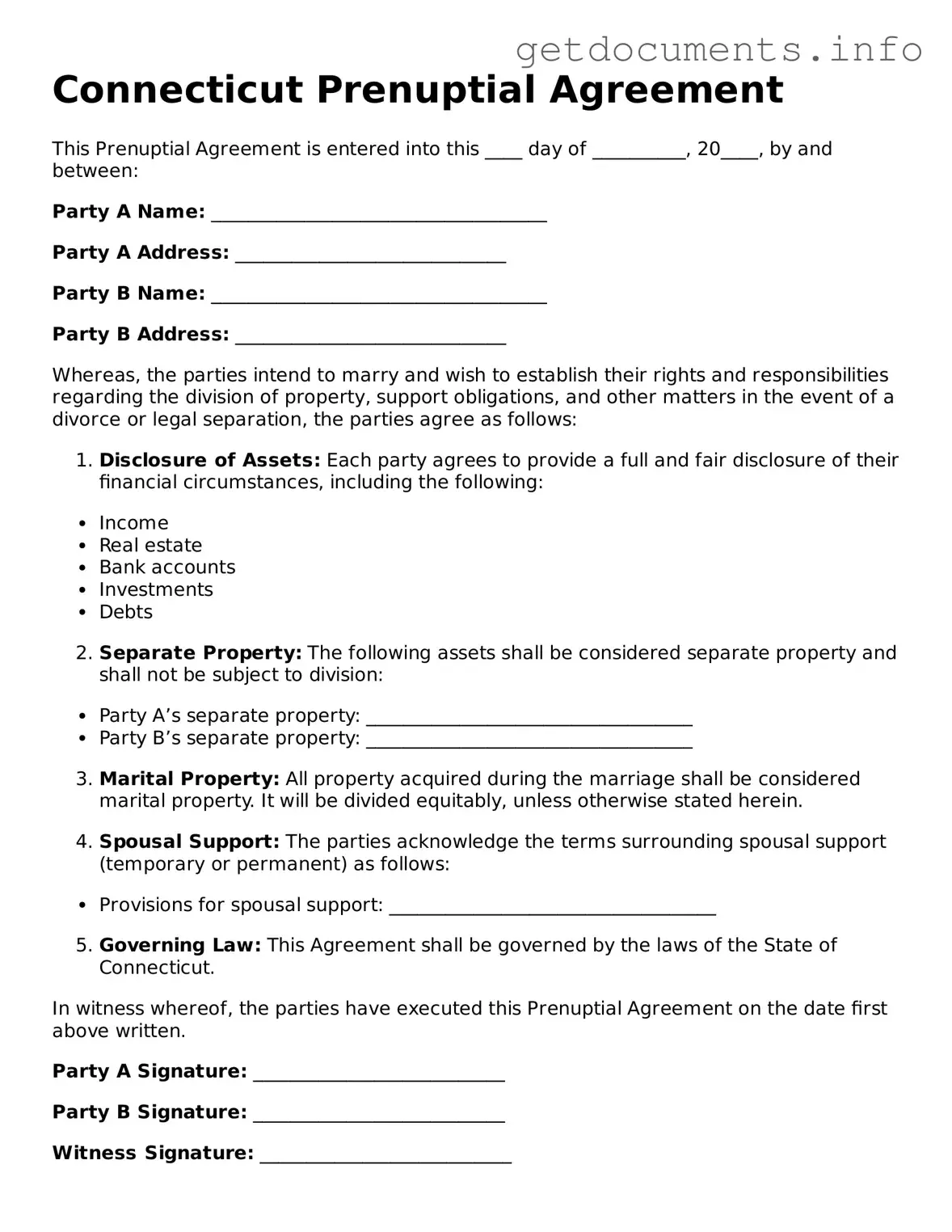Free Prenuptial Agreement Template for Connecticut
A Prenuptial Agreement is a legal document created by two individuals before they get married, outlining how their assets and debts will be handled in the event of a divorce or separation. In Connecticut, this form serves to protect both parties' interests and can help clarify financial responsibilities. To ensure your agreement is tailored to your needs, consider filling out the form by clicking the button below.
Access Prenuptial Agreement Editor

Free Prenuptial Agreement Template for Connecticut
Access Prenuptial Agreement Editor
Got places to be? Complete the form fast
Fill out Prenuptial Agreement online and avoid printing or scanning.
Access Prenuptial Agreement Editor
or
⇩ PDF File
